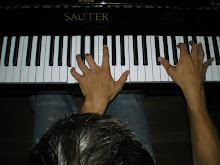I understand the criticism, but it all seems to be based on the premise that mis-interpretation, mis-copying or whatever, is necessarily bad and cheap. Is this really the case? Whats the justification for a position like this? sometimes imitation can cheap- helplessly and pathetically cheap. For example, there are certain post-modern pseudo-historicist tendencies that makes me crin
 ge:
ge:(This is cheapafying classicism, an affectation that is not legitimately re-interpreting, but seems to mock more than anything else.)
There is a great evolutionary value in re-or mis- interpretation. Romanesque and consequently Gothic cathedrals would not exist otherwise. Nor would Roman architecture at all. Nor would greek for that matter (egypt). Historically, this is how arts developed and changed, how they evolved over time- through changes in perception, and most importantly, through imitation and those minor idiosyncrasies that always arise in the act of imitation.
Russian Churches, for example- Their distinctive style came from centuries-old of mis-interpretations of byzentine chuches. Without this mis-interpretation we would have never had the incredible beauty of St. Basil's in Moscow

This stylistic progression may have taken nearly 800 years, but damn does it end with a bang. (and doubtless would have continued to evolve had the renaissance not come to russia afterwards)
Stravinsky certainly understood the value of mis-interpretation, and no doubt, expected there to be a difference between his ragtime and those being played in america (when wrote the piece he had never actually heard american ragtime played, after all) So what is the gesture? Simply put, stravinsky found a way to create a new sound, based on rag sources but ultimately stravinsky.
So why do we allow for those implicit assumptions that deem both imitation and mis-interpretation as necessarily an aethetic cop-out or hack-work when this is clearly not the case? its essentially the dogma of modernism still slipping into our perceptions and argumentation.

No comments:
Post a Comment